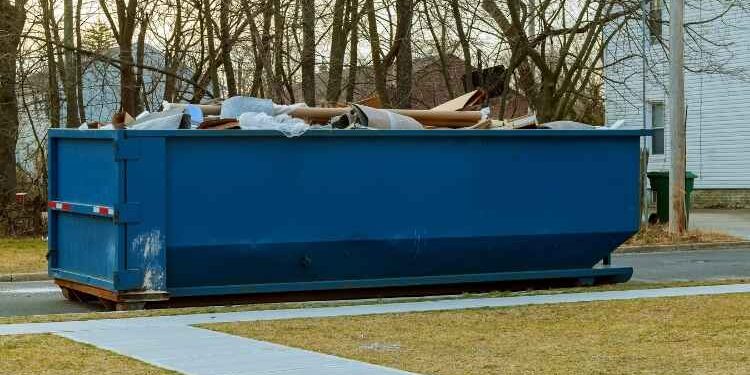What goes into your dumpster impacts the environment. While most items are allowed, there are some rules and regulations that you must follow. A company like Dumposaurus Dumpsters & Rolloff Rental serving Round Rock will guide you and tell you what you can and cannot put in the dumpster, but you must also do your research to avoid penalties and other issues. Below is a list of things that you can put in dumpsters.
Furniture
You can add all furniture to a dumpster, including couches, tables, and chairs. However, some areas may not permit mattresses and upholstered furniture in landfills. In some others, you may have to pay to discard the upholstered furniture. Make sure you check with your rental provider about the different types of furniture allowed in their containers.
Appliances
Most general household appliances like AC units, washers and dryers, and microwaves are allowed in dumpsters. You must remove all hazardous components and fluids from the appliances before discarding them.
Electronics
Most dumpsters will accept electronic items like TVs, printers, and computers. If you have large quantities, you can recycle them as e-waste. You may have to pay an additional charge per item to cover the recycling fees. However, some areas may not permit electronic items in dumpsters. If you have hired a professional dumpster rental company like Dumposaurus Dumpster Rental Service, they will clarify your doubts and give you information on how to discard your electronics and other waste.
Alkaline Batteries
Regular alkaline batteries can go in a dumpster in almost every state in the US. These batteries come under the federal and state standards for household hazardous waste in most states and hence can be put in dumpsters.
Yard Waste
Most dumpsters allow yard waste like grass, trees, branches, and other green waste. However, some locations limit the amount of green waste you can send to a landfill. Hence, you may not be able to dispose of all of your green waste.
Construction Debris
You can put almost all construction waste like bathroom fixtures, asphalt, brick, concrete, cabinetry, countertops, flooring materials, drywall, lumber and wood materials, stone, siding, subfloor materials, and tiles in the dumpster. If these items are significantly heavy, you may have to rent a dumpster specially designed for heavy materials.
Empty Aerosol Cans
You can throw empty Aerosol cans like non-stick cooking spray and hairspray. These cans must be empty because they can explode if they are even partially full.
Things Not to Put in a Dumpster
While you must know what can go into a dumpster, you must also be aware of what to avoid. Here is a list of items that you cannot discard in dumpsters:
Asbestos
You should hire a licensed contractor to perform professional waste removal if your home has asbestos.
Adhesives
Adhesives like epoxy and glue can bind materials to the dumpster walls and to each other. Hence, they are not allowed in dumpsters.
House Cleaning Fluids
Though you may put empty cleaning bottles in a dumpster, the actual cleaning solutions and liquids should not be thrown in them. You can check for specific disposal instructions on the packaging. If they don’t have instructions, you must determine the function of the chemical in the fluid before discarding it.
Hot Water Tanks
Hot water tanks are not allowed in dumpsters because they can collect harmful gases and explode. You can contact the hot water company to check if the person delivering your new hot water tank can pick up the old one. If that is not possible, you can contact a professional junk hauler or your local waste management facility to find out about hot water tank disposal.
Medical Waste
You cannot throw any material that has had contact with bodily fluids in the dumpster. This includes hospital blood bags, dialysis waste, animal body parts, human blood or blood-soaked fabrics, expired drugs, and used needles. Most medical waste from households like small bandages, cotton wipes, and tools is considered non-infectious waste and can be put in the dumpster.
Several federal, state and local regulations govern most waste disposal in the US. Every state and locality may have its own set of regulations. You should speak to your dumpster rental company or the local authorities if you have any doubts about what you can throw in the dumpster.
